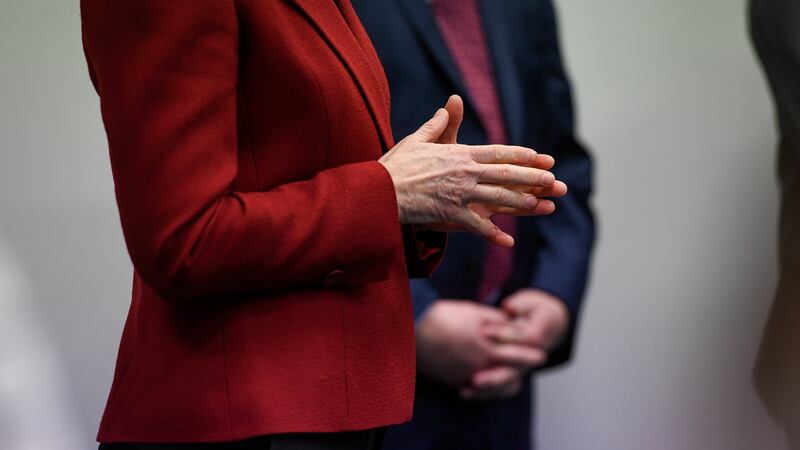THE LAWSUIT: Elkhorn Baptist Church v. Gov. Kate Brown
THE RULING: On May 18, Baker County Circuit Judge Matthew Shirtcliff ordered a preliminary injunction to block all 20 of Gov. Kate Brown's pandemic-related emergency orders.
THE CASE: Fifteen churches, three state lawmakers, the Grant County sheriff, a Christian school in Roseburg, and nearly two dozen additional individual plaintiffs sued Gov. Kate Brown for infringing on their rights to practice their religion.
Plaintiffs' attorneys Ray Hacke and Kevin Mannix based part of their argument on a state statute—ORS 433.441—which says a proclamation of a state of emergency expires 14 days after the public health emergency is declared, and that the governor may extend her emergency powers an additional 14 days. In total, this gives the governor 28 days of emergency powers.
The lawyers also argued that Brown is beholden to Article X-A of the Oregon Constitution, which says in situations of "catastrophic disaster," the governor must convene the Legislature within 30 days in order to extend her emergency powers.
THE JUDGE'S REASONING: Shirtcliff wrote in his May 18 order that the governor has discretion to use X-A, but she is not required to invoke it. So Shirtcliff dismissed that part of the plaintiffs' argument.
But Shirtcliff determined that Brown is beholden to ORS 433.441, which nullified her emergency powers after 28 days of declaring a state of emergency. This means Brown's emergency powers expired April 6.
In order to issue his preliminary injunction, Shirtcliff had to decide that plaintiffs experienced "irreparable harm" from the governor's executive orders.
"Plaintiffs have shown that they will be harmed by deprivation of the constitutional right to freely exercise their religion," Shirtcliff wrote. "Indeed, criminal penalties can be imposed if they violate current restrictions that are in place."
WHAT'S AT STAKE: "Any and all orders issued in response to the pandemic" could be nullified, court filings say. That would mean 20 of Brown's pandemic-centered orders, ranging from closing childcare facilities to placing moratoriums on renter evictions, would no longer hold the power of law. Brown couldn't prohibit gatherings of 25 people or more, and she couldn't require grocery store and pharmacy workers to wear masks.
Mannix says the case gets complicated when it comes to sections of Brown's orders that are already allowed under her regulatory powers. For example, as the state's superintendent of public instruction, Brown may have the authority—regardless of an emergency declaration—to close public schools.
WHAT HAPPENS NEXT: Following Shirtcliff's order, the state immediately filed a petition with the Oregon Supreme Court seeking dismissal. That night, the state Supreme Court granted an emergency stay on Shirtcliff's order, meaning Brown's orders are still in effect for now. The plaintiffs have until Friday, May 22, to respond.
The stay will remain in effect until the Supreme Court rules. The high court may decide either to uphold Shirtcliff's order or dismiss it.
WHAT THE PARTIES SAY: Mannix says he plans to file a "comprehensive response" with the state's highest court. "We all need to exercise our own common sense," he said in the statement. "This litigation is about the governor acting outside of the time frame in which she is allowed to exercise extraordinary emergency powers."
Brown issued a statement Monday night saying she has taken decisive action to protect the health of Oregonians. "There are no shortcuts for us to return to life as it was before this pandemic," she wrote. "Moving too quickly could return Oregon to the early days of this crisis."
